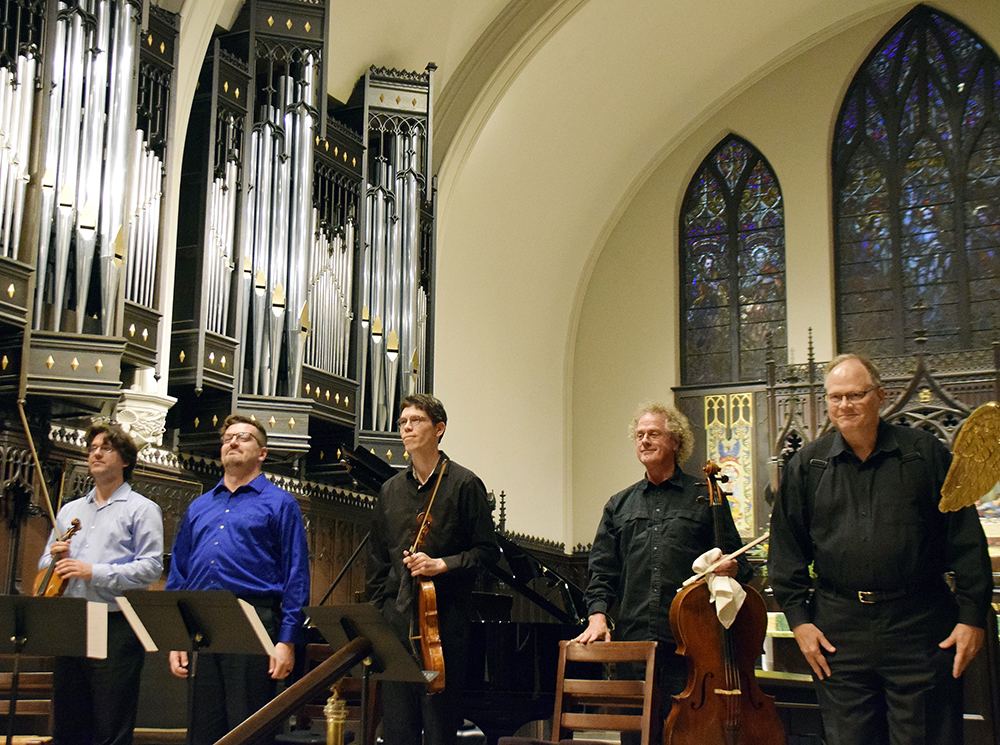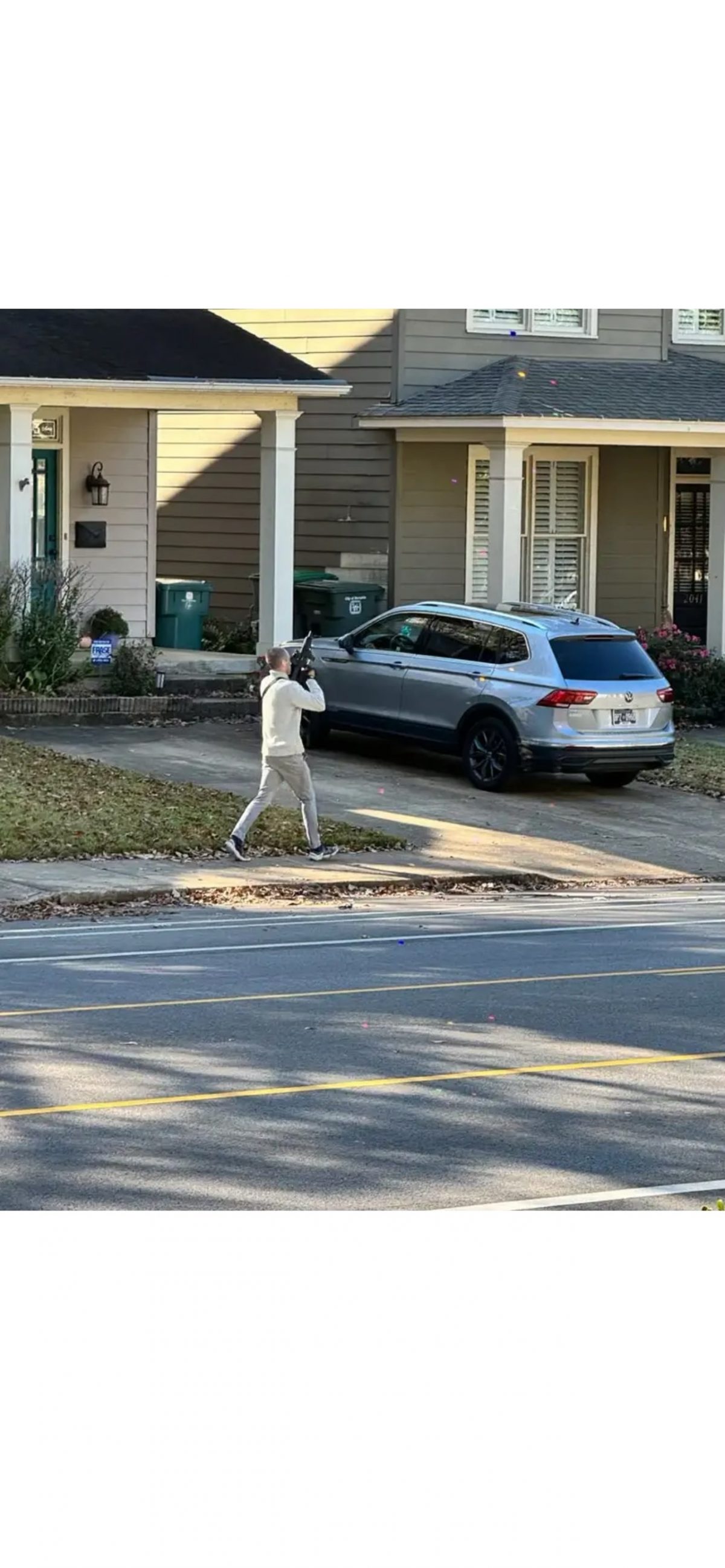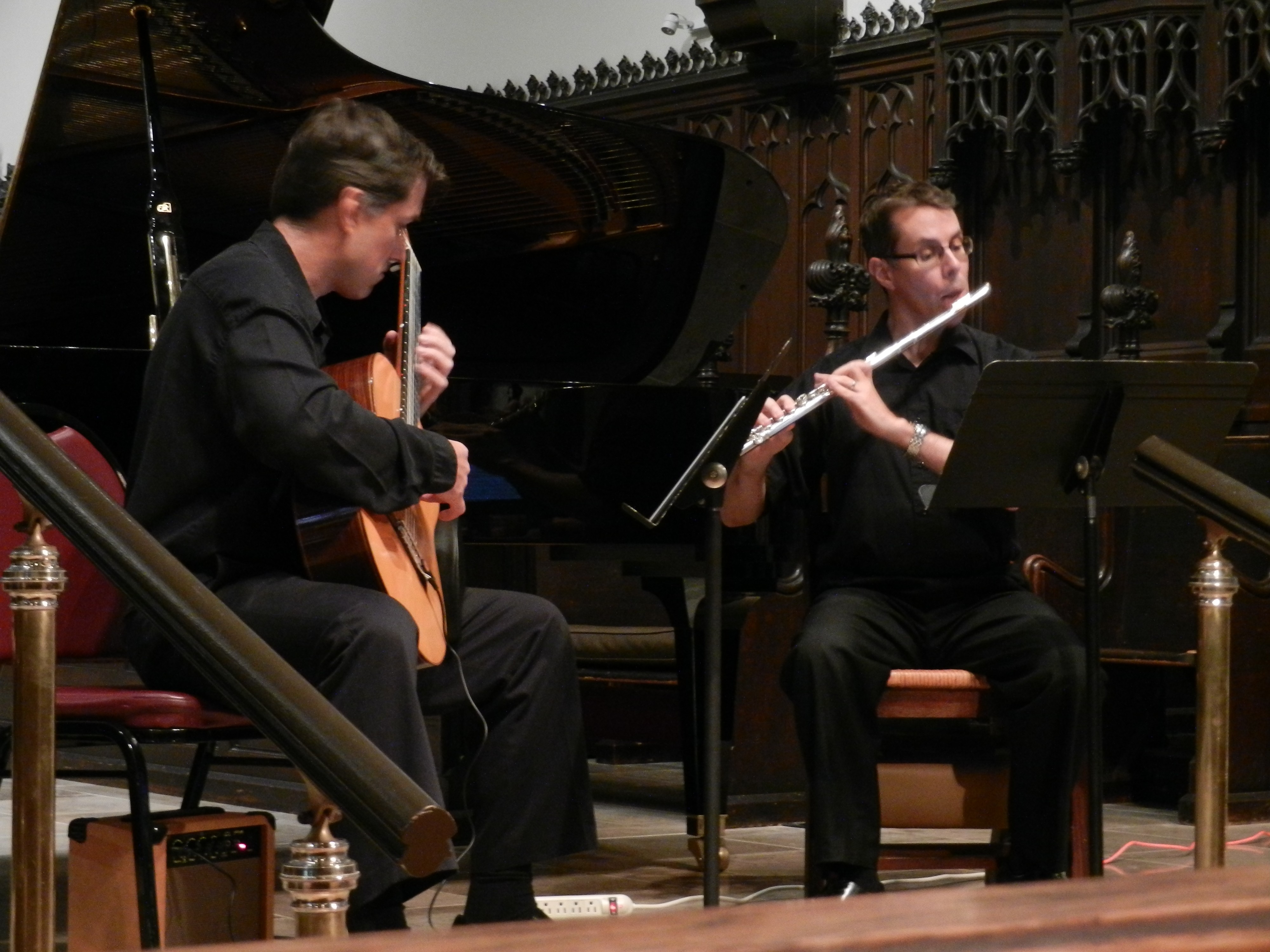There will be a distinctly personal aspect to the four-day Belvedere Chamber Music Festival when it kicks off its 19th year this Wednesday, June 25th, at Grace-St. Luke’s Episcopal Church — and that personal quality exemplifies just how much Luna Nova Music, the nonprofit that launched the festival, is built on relationships that span the globe. Italian composer Gianluca Verlingieri began attending the festival in 2007 as the winner of its first Student Composition Contest. Now, many years later, he’ll be paying bittersweet tribute to a recently deceased Memphis friend.
As Patricia Gray, executive director of Luna Nova, explains, Breen Bland and Jeanie Mercer “were complete believers in this whole project. We used to bring the student composers to Memphis for the festival from wherever they came, and I would find housing for them. At the very first one, the first-place winner was an Italian composer named Gianluca Verlingieri, who stayed with Breen and Jeanie, and they got to be big friends. They had all these things in common. They were big cooks. They liked the same music. Well, it turns out that they kept this up over all these years. When they would go to Europe, they would visit Gianluca. He is now a very successful composer in Italy.”
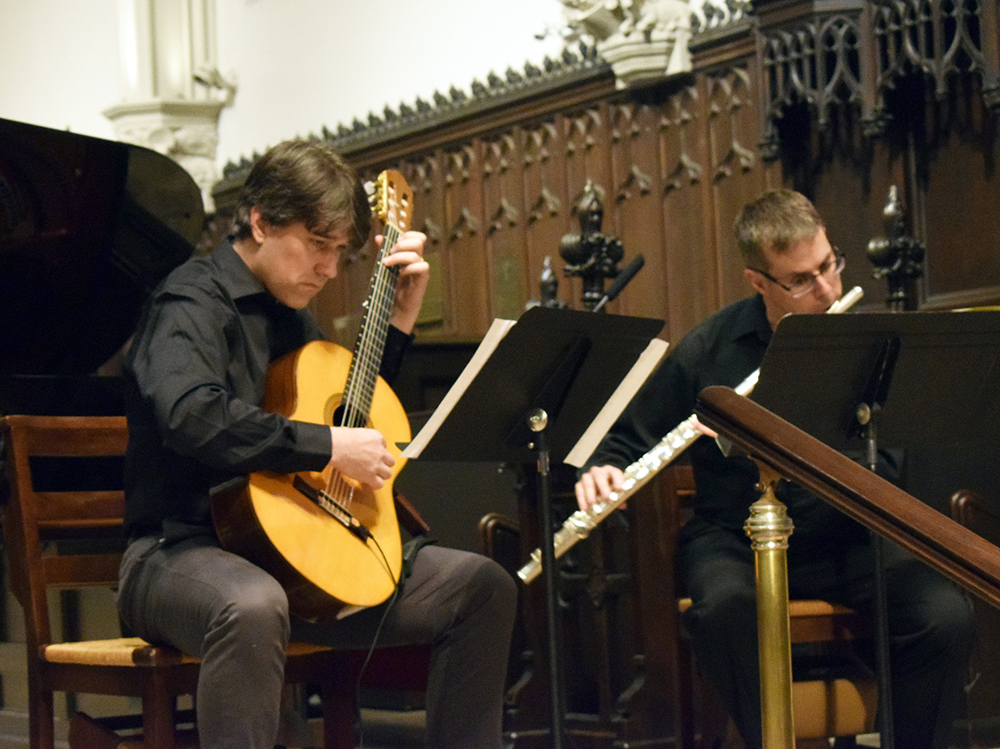
After Bland passed away in December, “Gianluca volunteered to write a piece that was dedicated to Breen, to be premiered at the festival,” Gray notes. “So he wrote this piece for violin and cello that’s going to be on the first concert. And Gianluca will be back in Memphis for this performance of his piece for Breen.”
As the composer notes in the program, the Galician-Portuguese title, “Falar sen voz [To speak without a voice], in memoriam Breen Bland,” describes “what music often does. And it is also what the memory of a loved one does — continuously — within us.”
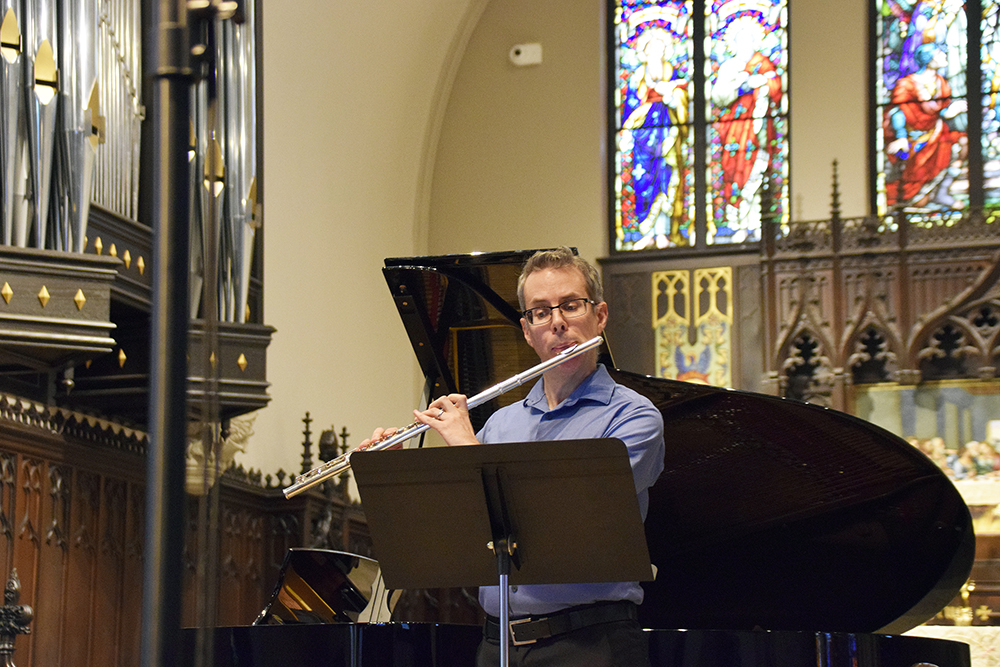
Verlingieri’s piece in Bland’s memory not only evokes the deep personal connections behind the festival; it also reveals one strength of any concert series primarily devoted to contemporary compositions, as opposed to works from over a century ago: Whether personal or political, new music speaks to our time. Consider the works’ titles, so unlike the dry catalog entries of older works in the classical repertoire: “Fast Track,” written in 1999 by Jonathan Chenette; “Ghost Rags,” written by William Bolcom in 1970; “Flouting Convention,” Louis Anthony deLise’s 2024 work; “Moonsong,” David Crumb’s piece for piano and cello, also from last year; or, perhaps most evocatively, “Glimpses of a Better World,” a new piece written by P. Brent Register, with movements like “Trapped,” “Find It,” “Little Things,” “Silence,” and, arguably the most unlikely of classical titles, “I Like Dogs.” These works reflect our lives, our language, our loves, and our loss as we exist today.
As for the newest of the new music, one aspect of the festival evokes not only the present, but the future. The Belvedere Student Composition Contest may be the festival’s most impactful element, shining a light on the latest up-and-coming talent and providing a venue to debut their work. This year, the festival honors “is it still autumn?,” a piano trio by first-prize winner Matthew Tirona of the New England Conservatory and Tufts University; “Three Urban Scenes,” a piece for flute, clarinet, violin, cello, and piano by second-prize winner Ethan Resnik of Rice University; and “Piano Trio No. 1” by third-prize winner Brittney Benton of Yale University.
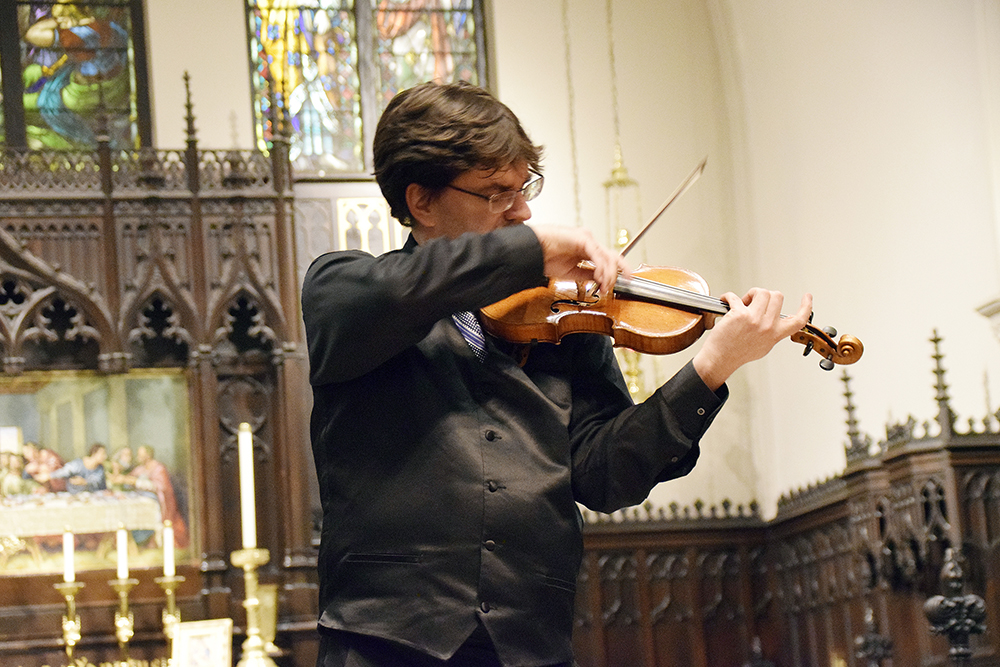
Beyond that, the festival offers an opportunity for Luna Nova’s players to stretch out on less common material both old and new. As Gray sees it, including older works is important to the festival’s programming, providing historical context to the newer works, as with the chaconne movement of Bach’s Partita No. 2 in D minor that will kick off the festival. “Bach is a towering figure that puts the whole world in perspective,” says Gray. “We feel like it’s kind of a cleansing thing to start with some movement of Bach.”
This year, that particular passage will also serve as a tribute to Breen Bland. “Breen and Jeanie also were the hosts for Gregory Maytan, an amazing violinist that’s coming here from Germany, and Gregory of course has played that Bach chaconne a number of times. In fact, Breen had a recording of it that Gregory listened to at home often. So that was another reason it made sense to begin the first concert with it.”
Other recognized giants of the classical world will make an appearance, largely through 20th century works such as Romanian Folk Dances and selections from “Duos for Two Violins” by Béla Bartók, “Suite for Violin, Clarinet and Piano” by Darius Milhaud, “Five Melodies for Violin and Piano” by Sergei Prokofiev, and L’Histoire du Soldat by Igor Stravinsky, not to mention pianist Maeve Brophy’s take on “A Shaded Lane” from Florence Price’s Village Scenes, and cellist Hannah Schmidt’s interpretation of Philip Glass’ Orbit, which premiered in a 2013 Yo-Yo Ma performance that also featured Memphis-born dancer Lil Buck.
Expect many sonic surprises from roughly two dozen contemporary composers (including music inspired by art at the Dixon Gallery & Gardens composed by Gray’s husband, Robert Patterson of the Memphis Symphony Orchestra).
If the chamber music form lends itself to every variety of musical exploration, its inherently close-up and personal nature has led the Belvedere Chamber Music Festival to touch the hearts of Memphis audiences, and they keep returning. “I think it’s an easier draw,” Gray muses, “because you can tailor these programs to what you have available, to who you know you’ve got to play, and what they play, and how good they are. And you can tailor it to your audience. I think that there’s something that’s very approachable about it, just from the point of view of it being pretty easy to get in the car and go to a church and listen to music for an hour.”
The free Belvedere Chamber Music Festival takes place evenings at 7 p.m., June 25th to 28th, at Grace-St. Luke’s Episcopal Church (use the west entrance), with additional concerts on June 27th and 28th at 3 p.m. Visit belvederefestival.org for details.
